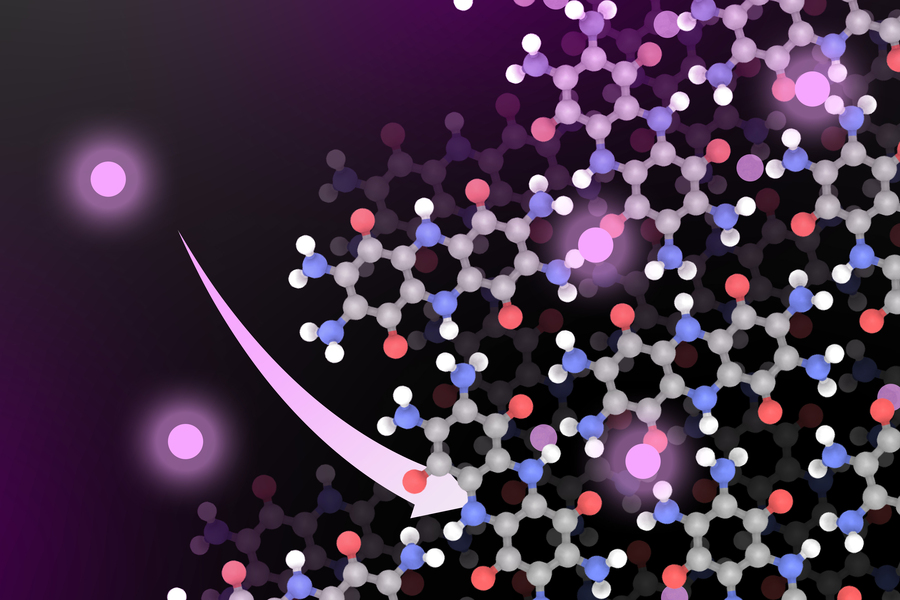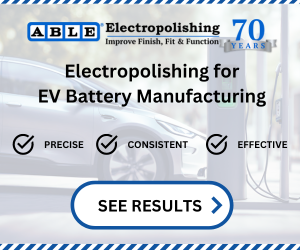MIT researchers have designed a new lithium-ion battery using an organic cathode that contains no cobalt or nickel.
In a new study, the researchers showed that this material an conduct electricity at similar rates as cobalt batteries, and could be produced at much lower cost. The new battery also has comparable storage capacity and charges faster than cobalt batteries, the researchers report.
The material has many layers of TAQ (bis-tetraaminobenzoquinone), an organic small module containing three fused hexagonal rings, which generate a graphite-like structure when extended in all directions. The molecules’ hydrogen bonds make the substance stable and insoluble, so it does not dissolve into the battery electrolyte as some organic battery materials do—this gives it a longer lifespan.
To stabilize the organic material and increase its ability to adhere to the battery’s copper or aluminum current collector, the researchers added filler materials such as cellulose and rubber. As these fillers make up less than one tenth of the overall cathode composite, they do not significantly reduce the battery’s storage capacity. These fillers also extend the life of the battery cathode by preventing it from cracking when lithium ions flow into the cathode as the battery charges. The material cost of assembling these organic batteries could be about one third to one half the cost of cobalt-containing batteries, the researchers estimate.
Lamborghini has licensed the patent on the technology.
The lab plans to continue developing alternative battery materials and is exploring the possibility of replacing lithium with sodium or magnesium.
“One of the main methods of degradation for organic materials is that they simply dissolve into the battery electrolyte and cross over to the other side of the battery, essentially creating a short circuit,” said Mircea Dincă, Professor of Energy at MIT. “If you make the material completely insoluble, that process doesn’t happen, so we can go to over 2,000 charge cycles with minimal degradation.”
Source: MIT




















































